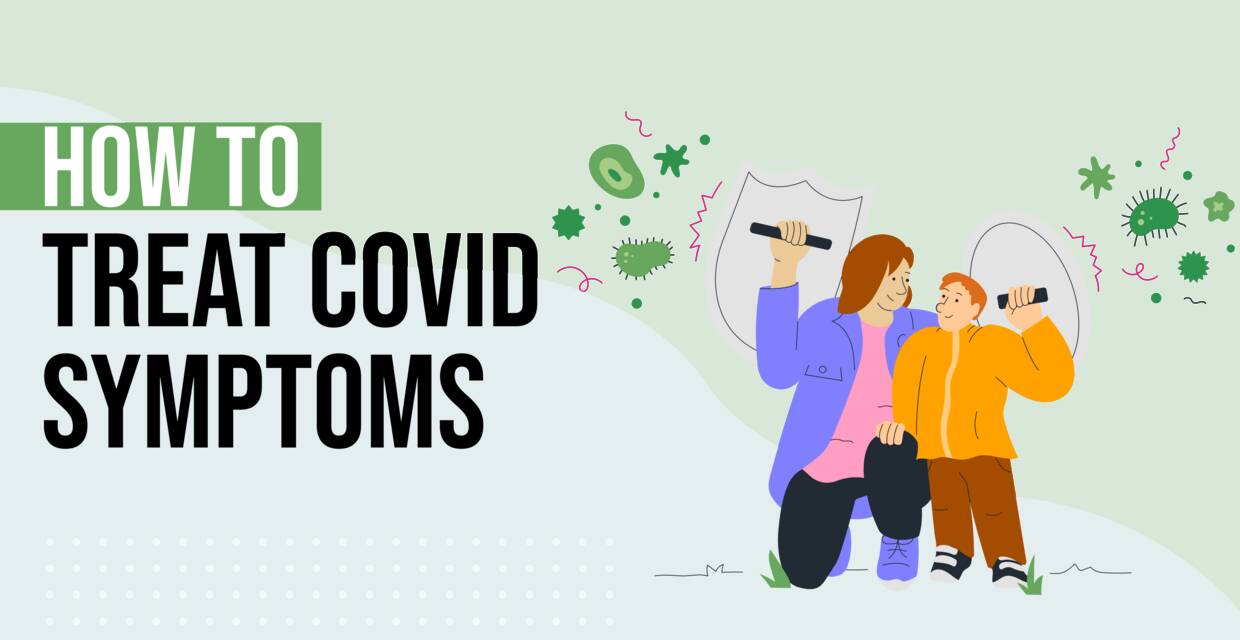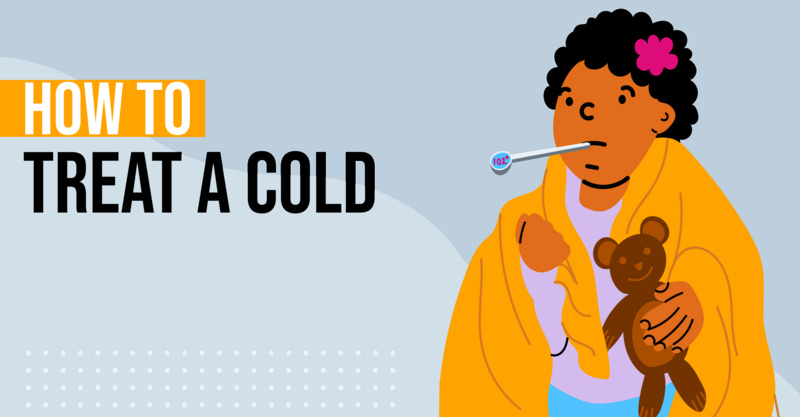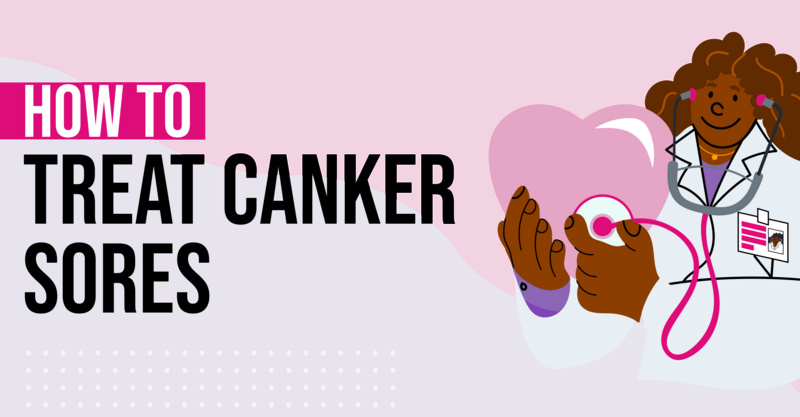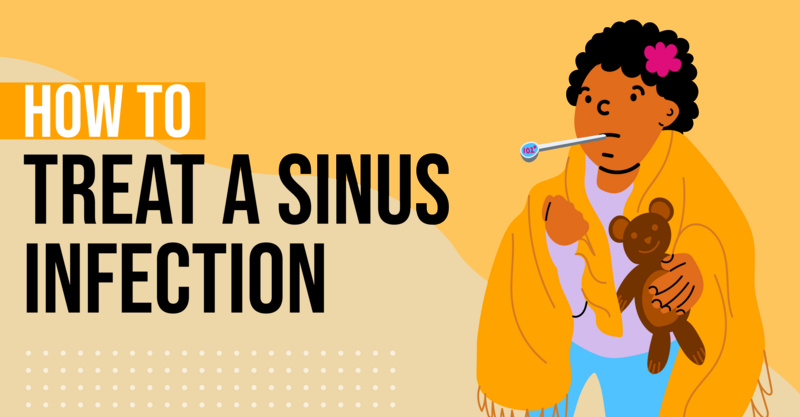Key Points
- The article provides a comprehensive guide on how to manage mild to moderate COVID-19 symptoms at home, emphasizing that these symptoms are similar to those of a cold or flu.
- The Mayo Clinic and CDC suggest rest, hydration, over-the-counter fever reducers, managing sinus congestion, honey for coughs and sore throats, and natural remedies like echinacea, vitamin C, zinc, or elderberry to boost the immune system.
- If symptoms worsen or severe symptoms like difficulty breathing, persistent chest pain, or new confusion arise, immediate medical attention is critical.
- The article also offers advice on preventing COVID-19, such as mask-wearing, good hand hygiene, avoiding contact with infected people, and getting vaccinated.
2024 will mark the fourth year of living in a world with COVID-19. Thankfully, more is known about this virus than ever before—including how to manage the symptoms of mild cases at home and when to get treatment for severe cases.
Because symptoms of mild and moderate cases of COVID-19 tend to be similar to the symptoms of a cold or flu (according to Healthline), many of the home remedies used for cold and flu symptoms can also be beneficial for COVID-19 symptoms.
How to Manage Your COVID-19 Symptoms at Home
Mild symptoms of COVID-19 can be managed at home, according to the CDC and Mayo Clinic. They recommend the following steps to help ease your symptoms and promote your recovery:
1. Get Plenty of Rest
One of the most important things you can do when you have COVID-19 is to get plenty of rest, according to the Mayo Clinic. This means taking it easy and avoiding strenuous activities that could make your symptoms worse.
2. Stay Hydrated
It's important to stay hydrated when you’re sick, including if you have COVID-19. The Mayo Clinic recommends that you drink plenty of fluids, such as water, herbal tea, and broth.
2. Use Over-the-Counter Fever Reducers If Necessary
If you have a fever or body aches, you can take over-the-counter fever reducers such as acetaminophen or ibuprofen according to the CDC.
4. Manage Sinus Congestion with Humidity & Nasal Irrigation
If you have any sinus congestion, you can use a humidifier to add moisture to the air—this can help relieve your symptoms according to WebMD. Nasal irrigation is also a great way to help clear your sinuses. This involves using a neti pot or nasal spray to flush out your sinuses with a saline solution.
5. Use Honey for Cough & Sore Throat Symptoms
Sore throat sprays, lozenges, and cough drops are all great over-the-counter options that can help with a sore throat and reduce coughing, according to WebMD. A saltwater gargle can also be helpful in soothing a sore throat, according to the Mayo Clinic. Additionally, swallowing a teaspoon of honey or adding honey to some hot tea can help both a sore throat and a cough, according to the Mayo Clinic.
6. Try Echinacea, Vitamin C, Zinc, or Elderberry
Echinacea, vitamin C, zinc, and elderberry are natural remedies that may help support your immune system and help you recover from cold symptoms sooner, according to the Mayo Clinic. Even though there is little scientific evidence that supports their effectiveness, the Mayo Clinic notes that there is little to no risk, so trying these remedies can’t hurt.
When to see a Doctor for COVID-19
The Mayo Clinic notes that you should see a medical provider if your COVID-19 symptoms seem to be getting worse. Additionally, if you have any of the following symptoms, they note that you should call 911 or go to the emergency room:
- Trouble breathing
- Persistent chest pain or pressure
- New confusion
- Trouble staying awake
- Pale, gray, or blue-colored skin, lips, or nail beds
How to Prevent COVID-19
COVID-19 is primarily spread through respiratory droplets that are released when an infected person talks, coughs, or sneezes, according to the CDC. The virus can also spread by touching a surface contaminated with the virus and then touching your mouth, nose, or eyes, they note. To avoid getting sick with COVID-19, the Mayo Clinic recommends taking the following steps:
- Wear a high-quality and well-fitting face mask, like an N95 or KN95
- Keep your hands away from your face as much as possible
- Wash your hands with soap, often
- Avoid direct contact with anyone who is sick with COVID-19
- Get the COVID-19 vaccine and any recommended boosters
Summary
COVID-19 continues to circulate in most places, along with other viruses. Good handwashing habits and getting the COVID-19 vaccine are both important for reducing your chances of getting sick, but if you do fall ill, you can use the following tips to support your recovery:
- Get plenty of rest
- Stay hydrated
- Use OTC fever reducers like acetaminophen or ibuprofen
- Use nasal irrigation to manage sinus congestion
- Use honey or a saltwater gargle for a cough and sore throat
- Try echinacea, vitamin C, or zinc to help support your immune system
You should see a doctor if your symptoms get worse or you start experiencing any trouble breathing.
Frequently asked questions
What are some recommended ways to manage mild to moderate COVID-19 symptoms at home?
The Mayo Clinic and CDC suggest getting plenty of rest, staying hydrated, using over-the-counter fever reducers, managing sinus congestion, using honey for cough and sore throat symptoms, and trying natural remedies like echinacea, vitamin C, zinc, or elderberry.What should I do if my COVID-19 symptoms worsen or become severe?
If symptoms like difficulty breathing, persistent chest pain, or new confusion occur, it's crucial to seek immediate medical attention.What are some preventative measures against COVID-19?
Preventative measures include wearing a mask, practicing good hand hygiene, avoiding contact with infected individuals, and getting vaccinated.Can home remedies used for cold or flu also be beneficial for COVID-19?
Yes, since the symptoms of COVID-19 are similar to those of a cold or flu, home remedies used for these illnesses can also be beneficial.What natural remedies can support the immune system during COVID-19?
Natural remedies like echinacea, vitamin C, zinc, and elderberry can help support the immune system.How can I manage sinus congestion from COVID-19 at home?
Sinus congestion can be managed with humidity and nasal irrigation.Can honey be used for cough and sore throat symptoms from COVID-19?
Yes, honey can be beneficial for managing cough and sore throat symptoms.What over-the-counter medications can be used to manage COVID-19 symptoms?
Over-the-counter fever reducers can be used if necessary to manage COVID-19 symptoms.
Solv has strict sourcing guidelines and relies on peer-reviewed studies, academic research institutions, and medical associations. We avoid using tertiary references.


 LinkedIn
LinkedIn










